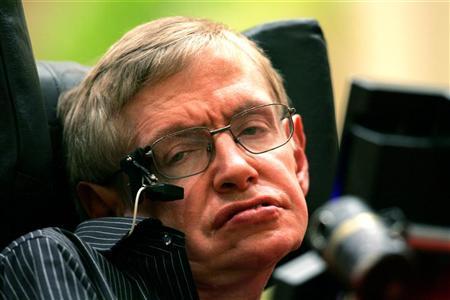Hawking: Humans must colonize other planets
(China Daily/Agencies)Updated: 2006-12-01 07:19
Humans will have to colonize planets in far-flung solar systems if the race is to survive, renowned physicist Stephen Hawking said in an interview yesterday as he was awarded a top honour.
"The long-term survival of the human race is at risk as long as it is confined to a single planet," he said in a radio interview with the BBC. "Sooner or later, disasters such as an asteroid collision or nuclear war could wipe us all out. But once we spread out into space and establish independent colonies, our future should be safe."
Because there are no other planets like Earth in our own solar system, Hawking said humans will have to travel to another star to find a hospitable planet to colonize. At the speed of chemical-propelled rockets like the Apollo, the trip to the next nearest star would take 50,000 years, he said.
While the warp drives described in science fiction are just that, Hawking said that using matter/antimatter annihilation, described in the TV series "Star Trek," would allow for travel at almost the speed of light.
When a particle and its antiparticle destroy each other, the entire mass is converted into energy. Some scientists, including Hawking, believe this process could be used to propel spacecraft.
Hawking, 64, whose speech and mobility have been limited to a speech synthesizer and wheelchair by the progression of Lou Gehrig's disease, gave an interview to the BBC yesterday before receiving an award from the Royal Society.
The Copley medal is the world's oldest award for scientific achievement, first awarded in 1731. Charles Darwin, Albert Einstein, Louis Pasteur and Sir James Cook also have received the award.
"This is a very distinguished medal," Hawking said in a statement. "It was awarded to Darwin, Einstein and Crick. I am honoured to be in their company."
Hawking is a mathematics professor at the University of Cambridge whose theoretical work has allowed for the classification and greater understanding of black holes. He has written four books, including the best-selling "A Brief History of Time" and "The Universe in a Nutshell."
To recognize Hawking's achievements in cosmology, British astronaut Piers Sellers carried Hawking's medal into space on the July shuttle mission to the international space station.
|
||
|
||
|
|

